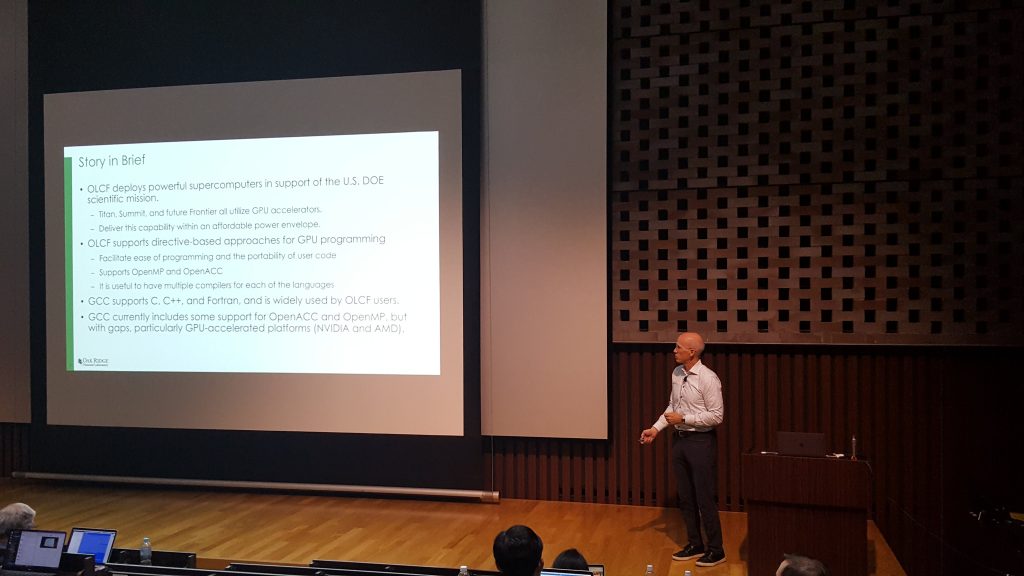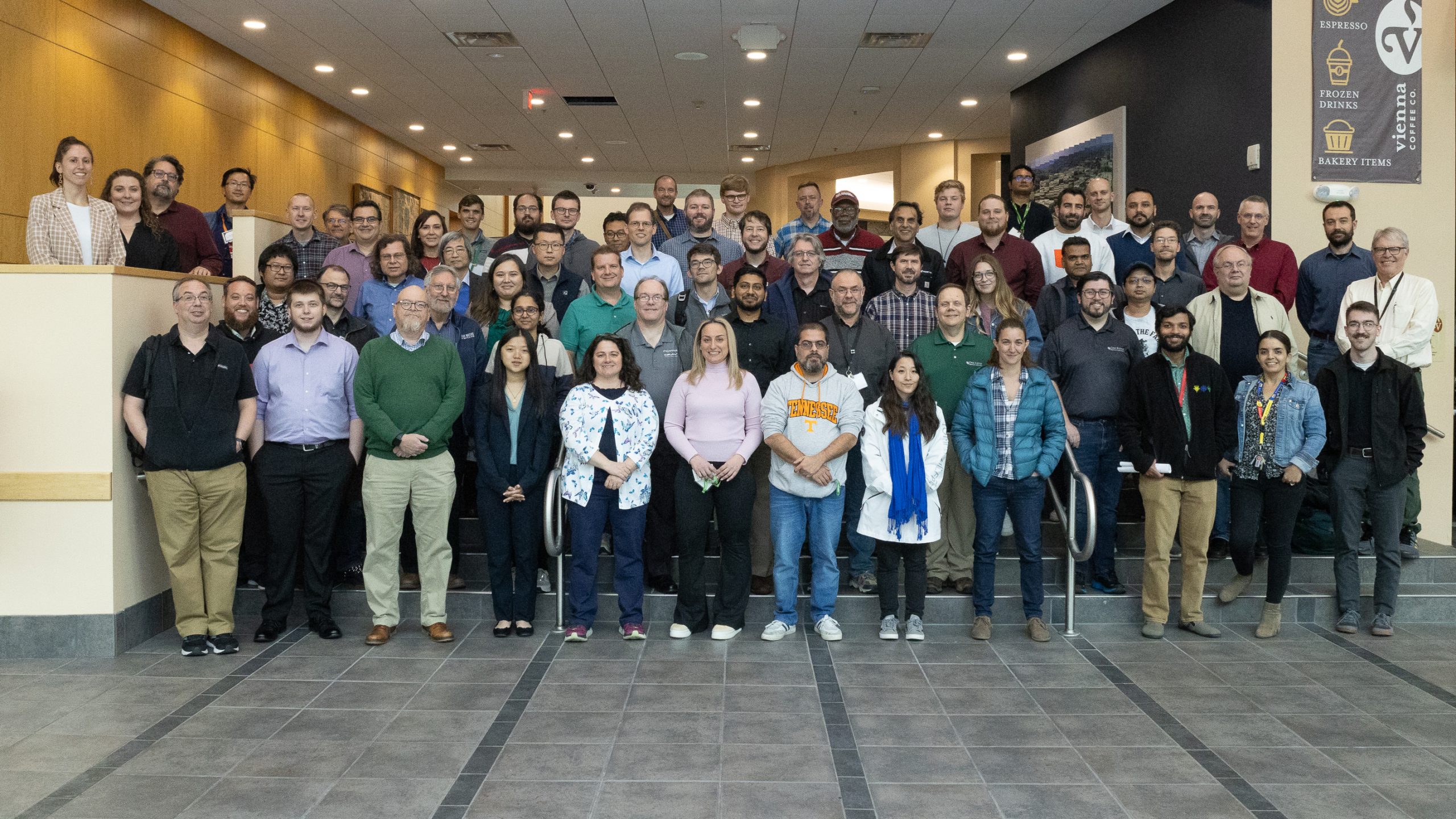
The OLCF’s Director of Science Jack Wells gave a keynote talk at the 2019 OpenACC Annual Meeting last week about the OLCF’s experiences with and plans for OpenACC in past and future HPC architectures.
OpenMP and OpenACC are widely used directive-based application program interfaces (APIs) that allow computer scientists and engineers to program applications on shared memory and accelerator architectures on high-performance computing (HPC) systems. OpenMP is broad in scope as a parallel programming model with all-encompassing capabilities, and OpenACC is used specifically to offload scientific codes to accelerators, most commonly GPUs. OpenACC’s narrow focus makes it especially manageable for implementation with different compilers, programs that convert higher-level code into instructions a computer can understand.
Staff members at the Oak Ridge Leadership Computing Facility (OLCF), a US Department of Energy (DOE) Office of Science User Facility at DOE’s Oak Ridge National Laboratory (ORNL), recently gave talks at the 2019 OpenACC Annual Meeting in Kobe, Japan, describing advances in HPC using the standard and the opportunities facing API developers today. Held September 2–5 and cosponsored by OpenACC.org and the RIKEN Center for Computational Science, the event is the most significant face-to-face OpenACC meeting of the year.
Jack Wells, director of science at the OLCF, gave a keynote talk titled “Experiences and Plans Using OpenACC for Leadership-Class Architectures at Oak Ridge Leadership Computing Facility.” Wells discussed notable achievements on the OLCF’s IBM AC922 Summit supercomputer using OpenACC, including its use within 5 of the 13 Center for Accelerated Application Readiness (CAAR) applications for OLCF’s Summit project. The API is continuing to expand in use, Wells said, pointing to its adoption in more than 200 applications across scientific domains and active development within 20 GPU hackathons organized around the world in 2019.
“The OLCF has strongly supported directive-based approaches for GPU programming on Titan and on Summit to facilitate the portability of user code between systems with and without such accelerators—specifically, the OpenACC and OpenMP languages, which are layered on C, C++, and Fortran,” Wells said.
“Looking to the future, we are committed to ensuring that OpenACC and OpenMP are mature and performant on the NVIDIA GPUs in Summit as well as the AMD GPUs that will be in Frontier.”
Frontier, a 1.5-exaflop system slated to be delivered to the OLCF in 2021, will feature AMD’s Radeon Instinct GPU accelerators.
Oscar Hernandez, tools developer in the Computer Science Research Group at the OLCF, gave an invited talk titled “Current Status on OpenACC Open Source Compilers and Their Evaluation.” Hernandez described the work that’s been done thus far on the GNU Compiler Collection (GCC) and the goals for achieving a performant, mature implementation of OpenACC.
Immediately before the conference, the OLCF issued a request for proposals to develop GCC and make OpenACC and OpenMP available for NVIDIA and AMD GPUs. GCC was the most frequently used compiler on the OLCF’s Jaguar and Titan systems as well as the most frequently used compiler on Summit during the supercomputer’s first year of production.
“GCC is where a lot of projects start, and once people start using a compiler suite, there’s inertia for them to continue,” Wells said. “With the idiosyncrasies from one compiler to the next and within the codes themselves, it becomes challenging to get a complex code to compile in more than one compiler.”
Wells and Hernandez also participated in the technical and executive meetings at the conference. Wells was recently elected vice president of the organization, and Hernandez serves as a member of the OpenACC board of directors.
“In accepting the role of vice president of OpenACC.org, I gained the ability to give a voice to the goals for this standard both inside and outside of the organization,” Wells said. “We are beginning to articulate a long-term vision for OpenACC, and that’s something I believe is important for DOE’s LCFs to be a part of as we move into the exascale era.”
The OLCF’s call for proposals to develop GCC will remain open until September 20.
UT Battelle LLC manages ORNL for DOE’s Office of Science. The Office of Science is the single largest supporter of basic research in the physical sciences in the United States and is working to address some of the most pressing challenges of our time. For more information, please visit https://energy.gov/science.






